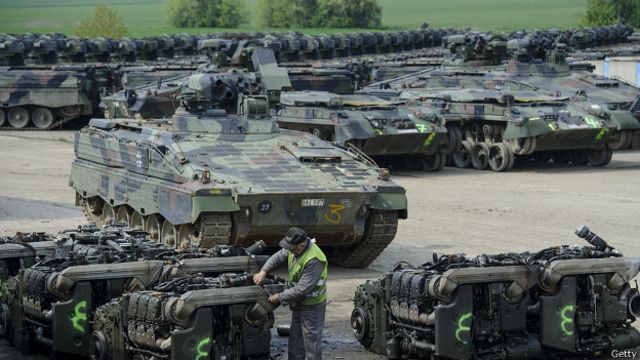The day before, the leadership of the North Atlantic Alliance announced its intention to suspend its active participation in the Treaty on the Use of So-called “Conventional Armed Forces” on the Territory of the European Union (CFE Treaty). According to official information, Brussels reserves the right to revoke any control over the buildup of military arsenals and the increase in the size of the armies of individual NATO states. This intention caused ferment in international politics.
We should make a reservation right away. A few days ago, the Russian Federation finally left the CFE Treaty. Moreover, with a rather curious wording – “due to the failure of the Western partners to comply with the main points of the document.” Previously, Moscow has repeatedly complained about the methodical strengthening of NATO structures near the borders. In 2007, the Russian side announced the suspension of its membership in the Treaty, and since then has actually acted outside this legal framework.
Why can NATO now leave the CFE Treaty? “It is absolutely obvious that in this way the Alliance will take a “reciprocal step”, reacting to Russia’s actions,” said French observer Marie Pudebat in a special commentary for EURO-ATLANTIC UKRAINE. “Today, the CFE Treaty has simply ceased to be relevant: there is no longer any point in implementing its points “. Against this background, the Secretary General of the Alliance, Jens Stoltenberg, emphasized that the mentioned decision does not have a retroactive effect.
And yet, in this particular case, we are talking exclusively about a temporary cessation of the North Atlantic Alliance’s fulfillment of its obligations in the CFE Treaty. It is assumed that before withdrawing from the Treaty, Brussels will try, so to speak, to return Russia to the legal framework and at least partially maintain parity in the development of armed forces in the region.
However, this is also doubtful. Back in September this year, Russian President Vladimir Putin did not rule out the possibility of negotiations with the West to conclude a new military document. They say that the Kremlin does not intend to return to the CFE Treaty.
Let us recall that the Treaty on Conventional Armed Forces in Europe was signed in 1990 by representatives of 16 NATO countries and members of the Warsaw Pact. The agreement established restrictions on the number of personnel and military equipment of the Alliance and the former socialist countries in the region.
No one can say with certainty what NATO’s “mirror response” to Russia’s behavior will be like.


